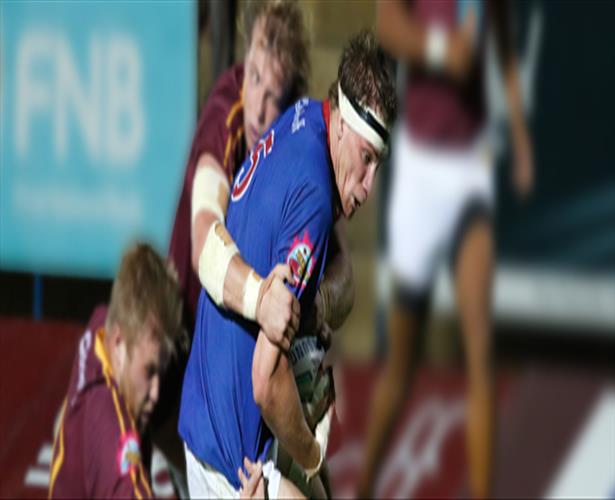
The versatile forward, Neil Claassen, will lead the Shimlas onto the field in the 2016 Varsity Cup. Photo: Johan Roux.
The University of the Free State (UFS) has a new group of rugby players, a new head coach, and a new captain.
This is how the Shimla skipper, Neil Claassen, summed up his team's approach to the 2016 Varsity Cup.
Although the UFS will start the tournament as defending champions, the 23-year-old Claassen believes that much has changed since 2015.
One of which is his appointment. The flanker, who can play lock as well, was recently appointed as Varsity Cup captain in his third series.
The former Springbok flanker, Hendro Scholtz, took over as head coach from Franco Smith, who is now the Cheetahs trainer. Mac Masina, former centre for the Lions, is a new assistant coach.
New year with more pressure
Because of all the changes, Claassen feels that the Shimlas will need a different approach to the 2016 tournament.
“There will definitely be more attention on us (as champions). However, the guys in the camp see it as a new year,” he said.
“There is pressure, but we don't focus on that too much.”
Previous leaders set example
According to Claassen, he has never before led a team for which he played.
“I didn't expect to be captain,” the former pupil of Paarl Gymnasium said.
“This is something new. I have played with good leaders like AJ (Coertzen) and Oupa (Mohoje) before, and will take forward what I have learned from them.”
He also believes that there are several senior players, such as the vice-captain, Pieter-Steyn de Wet, who will assist him in his leadership role.
Back from injury
Claassen has played Currie Cup, Vodacom Cup, U21 and U19 rugby for the Free State.
However, a knee injury kept him out of action for nine months and he missed the last three Varsity Cup matches of 2015.
He returned for a training match against the University of Johannesburg in Kroonstad on 23 January 2016. The Shimlas also played a warm-up match against the University of KwaZulu-Natal in Bethlehem on 16 January 2016.